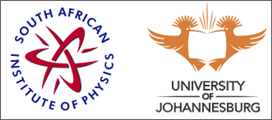Speaker
Level for award<br> (Hons, MSc, <br> PhD)?
MSc
Would you like to <br> submit a short paper <br> for the Conference <br> Proceedings (Yes / No)?
Yes
Apply to be<br> considered for a student <br> award (Yes / No)?
Yes
Main supervisor (name and email)<br>and his / her institution
Dr RD Mavunda, Necsa, risimati.mavunda@necsa.co.za
Abstract content <br> (Max 300 words)<br><a href="http://events.saip.org.za/getFile.py/access?resId=0&materialId=0&confId=34" target="_blank">Formatting &<br>Special chars</a>
Radon is a radioactive noble gas of a natural origin that may be found anywhere in soil, air and in different types of water. Researchers have realized that human exposure to radon can lead to healthy-risks. Since radon and its progeny produce many alpha and beta particles, its inhalation or ingestion may cause cancer in human organs, particularly in the lungs. Therefore, assessing radon in natural water and soil is an important step towards the reduction of potential exposure to it.
In this investigation, the concentration of Rn-222 was measured and a Kinetic Theory of an Ideal Gas technique to measure radon generation in river water sample using Solid State Alpha Detector (RAD-7 radon monitoring device). The mathematical model of the measurement technique provides the radon concentration response of RAD-7 as a function of the sample volume. For experimental validation of the technique, radon concentration was measured at twenty different volumes. Fitting the parameters of the model to the measurement results, with the generation rate and diffusion length of radon being estimated. The optimal sample volume for estimating the radon generation from a single measurement was also determined. The effect of the sqmpl temperature to the release of radon gas from water was also explored experimentally.

